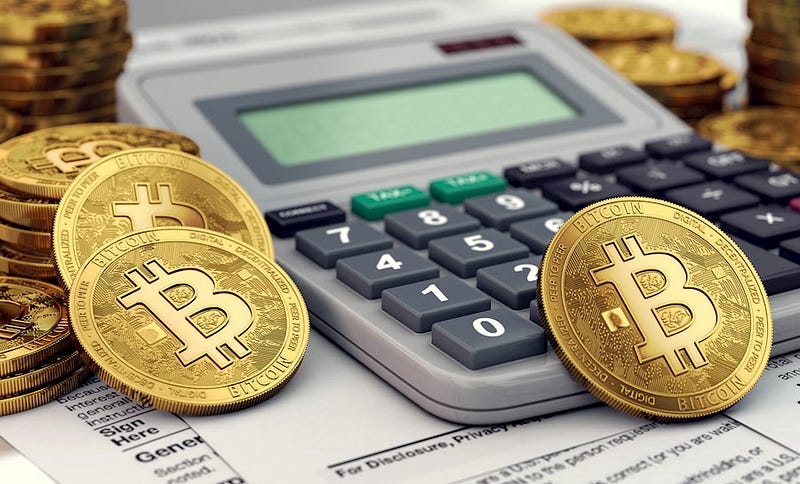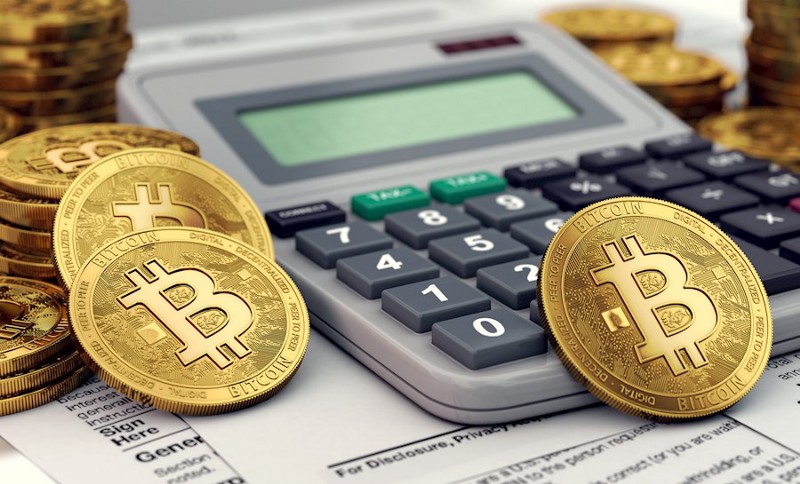Bitcoin is money, but it is also a ledger, a commodity and a token. It is all these things and more. The issue is not which one of these we need to define Bitcoin, but, which one defines Bitcoin in a particular use.

In this, I will present a series of posts that will form a paper to be released later. Bitcoin is money, but, like bullion based monetary systems (e.g. Gold and silver coins), there are different ways to account for its use, based on the form of use.
As an example, in a Gold based system, there are many ways to account for gold. There are different tax treatments based on:
- Bullion
- Minted Bullion grade coins
- Minted non-bullion grade coin
- Collectable coins
- Jewellery
- Use in Electronics and as a commodity
- unrefined gold
The same applies to Bitcoin, it has many uses and each will be treated separately in tax law. Some are:
- a commodity as a means to store data on a ledger
- Money (coinage)
- Currency
- A token based marker (e.g. a movie ticket)
- A Contract, such as a bond
- A contract linking to an equity (share) of a company
Bitcoin as money
In its May 2013 report to U.S. Senate Committee on Finance (“Virtual Economies and Currencies: Additional IRS Guidance Could Reduce Tax Compliance Risks”), the United States Government Accountability Office (GAO) stated that:
“According to bitcoin’s peer-to-peer-network-generated statistics, as of May 1, 2013, approximately 11 million bitcoins were in circulation. Bitcoin exchange rates against the U.S. dollar historically have been volatile. From May 2012 through February 2013, prices ranged between $5 and $20 for 1 bitcoin. Prices increased through March 2013, and then from April 1, 2013, to May 1, 2013, ranged between $79 and over $237 for 1 bitcoin. In the same time period, the number of bitcoin transactions per day ranged from approximately 8,000 to 70,000 transactions per day.”[1]
Compare this to 2015’s statistics of 14 million bitcoins in circulation[2], with an average price of $354.28[3] USD throughout the year and approximately 159,331 transactions per day[4].
Further, as discussed below, major businesses are now accepting or testing Bitcoin as a means of payment.
Governments are also taking the growing Bitcoin economy and the use of Bitcoin as money by the community seriously:
- in Germany, the German Finance Ministry has recognised Bitcoin as a “unit of account” (i.e. recognition as a unit of currency); [5]
- in Switzerland, the Swiss tax authority issued a statement that bitcoin is to be treated just like any other payment option — trading bitcoin for Swiss francs is seen as similar to trading euros for Swiss francs. Furthermore, the transaction fees charged by bitcoin exchanges are VAT-free;[6] and
- in the UK, HMRC has given the green light for bitcoin in the form of scrapping previous plans to enforce a VAT, as well as treating it as a private currency[7].
(a) Bitcoin as payment for goods and services
Bitcoin is used and accepted as payment in real world transactions for goods and services (e.g. online services, retail goods). Although such transactions are primarily conducted online, Bitcoin is increasingly being accepted as payment by “bricks and mortar” shops.
Notable online businesses accepting Bitcoin (now or in the past) as payment include:
- Microsoft (www.microsoft.com/) — global computing giant;
- Dell (www.dell.com) — multinational computer technology vendor;
- Starbucks (www.starbucks.com) — coffee company and coffeehouse chain;
- Wordpress (www.WordPress.com) — one of the world’s most popular blogging systems;
- Reddit (www.reddit.com) — a popular social news and entertainment website;
- Gyft (www.gyft.com) — a seller of gift cards for large stores and brands (e.g. Target (US)); and
- Overstock.com (www.overstock.com) — a major NASDAQ-listed online retailer of surplus and new merchandise with international operations. In its first day of accepting Bitcoin, Overstock reportedly accepted 800 orders in Bitcoin worth approximately USD 126,000;[8]
- Expedia (www.expedia.com) — a major travel website to purchase flights, hotels and travel accommodations;
- PayPal (www.paypal.com) — a worldwide online payments system; and
- Zynga, the NASDAQ listed online game developer.
“Bricks and mortar” businesses accepting Bitcoin as payment include cafes, restaurants, real estate agents, and even law firms.[9]
Online directories such as useBitcoins.info (http://usebitcoins.info/) and SpendBitcoins (http://spendbitcoins.com/) contain extensive lists and maps of businesses accepting Bitcoin.
It should also be noted that these online directories rely on input from their users, and as such may understate the number of businesses actually accepting Bitcoin as payment.
Bitcoin Exchanges
Bitcoin can be purchased or sold online via “Bitcoin Exchanges”, with prices set against the value of real world currencies.
Broadly speaking there are two types of Bitcoin Exchanges:[10]
- “market based” exchanges — which operate markets matching buyers and sellers of Bitcoins; and
- “fixed rate” exchanges — the exchange provides a price for Bitcoin, and Bitcoin is bought or sold directly with the operator of the exchange.
The majority of media attention has been on “market based” exchanges. However, there are similarities in that both types of Bitcoin Exchanges take deposits of real world currency to facilitate Bitcoin trades.
The popularity of Bitcoin Exchanges has in fact lead to leading online foreign exchange services providers XE (www.xe.com) and Oanda (www.oanda.com) quote exchange rates for Bitcoin (using the currency codes XBT and BTC , respectively in the pre-split days and now BCH).
Exchanging Bitcoins locally
Users can also exchange Bitcoins other local users for cash. For example, users may trade Bitcoin at meetings for Bitcoin enthusiasts.
Websites such as LocalBitcoins.com (http://localbitcoins.com/) also act as marketplaces where users can locate other local users.
Bitcoin services providers
Moreover, the growing acceptance of Bitcoin as payment by businesses is also fostering the growth of Bitcoin services providers such as BitPay (http://bitpay.com), the leading global Bitcoin payment services provider.
On its website BitPay currently advertises that it has over 60,000 businesses using its Bitcoin payment processing platform, and Bitpay reportedly processed more than USD 100 million in Bitcoin transactions in 2013, roughly a quarter million Bitcoin transactions per day.[11] By 2014, BitPay was processing USD $1 million in Bitcoin transactions per day.[12]
Differences to other virtual currencies
Virtual currency has been described by the European Central Bank as “a type of unregulated, digital money, which is issued and usually controlled by its developers, and used and accepted among the members of a specific virtual community.”[13]
Other well-known virtual currencies include Linden Dollars (used in the Second Life virtual community) and World of Warcraft (WoW) Gold (issued and used in the WoW online role-playing game).
However, unlike other virtual currencies, Bitcoin:
- is not controlled by a central organisation or authority as it utilises a decentralised public computer network (i.e. the Bitcoin network);
- is not a packet of data stored on a computer that is transferred to a new owner as payment. Rather payment involves a reallocation of Bitcoin balances / value in the public ledger [14]; and
- is used solely as a means of payment by businesses and consumers for real world transactions.
Differences to barter schemes
A barter scheme (also known as a barter exchange or trade exchange) is an arrangement facilitating the barter of goods and services between members of the scheme. The operator of the barter scheme provides a service to the members of the scheme and is compensated by payment of membership fees.
Members of barter schemes agree in writing to accept credits (or units, trade dollars or barter dollars) to their membership accounts in exchange for the goods and services they provide to other members, and those credits in turn can be used to obtain goods and services provided by other members of the scheme.
Bitcoin should be distinguished from such barter schemes. In particular:
- unlike barter schemes, Bitcoin does not rely on users being parties to an underlying legal arrangement;
- as noted, Bitcoin is not controlled by a central organisation or authority;
users of Bitcoin do not need to “earn” Bitcoin by providing goods and services — Bitcoin can be acquired by purchasing Bitcoin (e.g. on a Bitcoin Exchange); and credits in barter schemes cannot be directly converted or exchanged for real world currency, and have no value to persons outside the barter scheme.
Notes:
[1] United States Government Accountability Office, “Virtual Economies and Currencies: Additional IRS Guidance Could Reduce Tax Compliance Risks” (GAO-13–516), May 2013 (http://www.gao.gov/assets/660/654620.pdf, accessed 12 January 2014), page 8.
[2] http://www.bitcoinwatch.com/, accessed 12 November 2015.
[3] http://www.investing.com/currencies/btc-usd-historical-data, accessed November 2015.
[4] http://www.bitcoinwatch.com/, accessed 12 November 2015.
[5] Schmeller, Johanna, “Germany lends real value to bitcoin virtual money”, Deutsche Welle (22 August 2013) (http://www.dw.de/germany-lends-real-value-to-bitcoin-virtual-money/a-17038675, accessed 14 January 2014).
[6] Giulio Prisco, “Swiss Tax Authorities Confirm that Bitcoin is VAT-free in Switzerland”, Bitcoin Magazine (13 June 2015), (http://bitcoinmagazine.com/articles/swiss-tax-authorities-confirm-bitcoin-vat-free-switzerland-1434140401, accessed 12 November 2015).
[7] Caleb Chen, “HMCR clarifies tax treatment of activities involving bitcoin and other similar cryptocurrencies”, Cyptocoin News (4 March 2014) (http://www.cryptocoinsnews.com/hmrc-clarifies-tax-treatment-of-activities-involving-bitcoin/, accessed 12 November 2015).
[8] Metz, Cade, “In First Day with Bitcoin, Overstock Does $126,000 in Sales), Wired(10 January 2014) (http://www.wired.com/business/2014/01/overstock-bitcoin-sales/, accessed 14 January 2014).
[9] See e.g Solomon, Dave, “Dollars gone digital: Bitcoin is gaining acceptance as currency in the Granite State”, The Union Leader (11 January 2014) (http://www.unionleader.com/article/20140112/NEWS02/140119886, accessed 14 January 2014); Neil, Martha, “My Clients Can Pay me in Bitcoins, Criminal Defense Lawyer Says”, ABA Journal (1 May 2013) (http://www.abajournal.com/news/article/criminal_defense_lawyer_says_clients_can_pay_him_in_bitcoins/, accesed 14 January 2014); Thistleton, Rebecca, “Bitcoin arrives on the property scene”, Australian Financial Review (13 May 2013) (http://www.afr.com/p/business/property/bitcoin_arrives_on_the_property_9VlRmNY9FqDJZUjZcJ97ZL, accessed 14 January 2014)
[10] http://en.bitcoin.it/wiki/Buying_bitcoins#Fixed_Rate_Exchanges_.26_Others, accessed 14 January 2014
[11] “Bitpay Exceeds $100,000,000 in Bitcoin Transactions Processed”, BusinessWire (11 December 2013) (http://www.businesswire.com/news/home/20131211005909/en/BitPay-Exceeds-100000000-Bitcoin-Transactions-Processed#.Utd13NIW2QA, accessed 16 January 2014).
[12] “BitPay Now Processing $1 Million in Bitcoin Payments Every Day”, CoinDesk (28 May 2015). (http://www.coindesk.com/bitpay-now-processing-1-million-bitcoin-payments-every-day/, access 12 November 2015).
[13] European Central Bank, Virtual Currency Schemes, October 2012 (http://www.ecb.europa.eu/pub/pdf/other/virtualcurrencyschemes201210en.pdf, accessed 12 January 2014)
[14] Bollen, Rhys, “The Legal Status of Online Currencies: Are Bitcoins the Future?” , (2013) 24 JBFLP 272 at 275., at 276.

